The views and opinions of Senior Fellows do not represent the official views, opinions, or endorsement of Texas A&M University, the Bush School of Government & Public Service, or the Scowcroft Institute of International Affairs.

Christine Blackburn, PhD
Christine Crudo Blackburn is an Assistant Professor of Health Policy and Management in the School of Public Health at Texas A&M University. She is also Affiliated Faculty in the USA Center for Rural Health Preparedness at Texas A&M University. Dr. Blackburn conducts research on rural health access, emergency medical services, preparedness and response, global health security, and the impacts of immigration law on health access for immigrants and mixed status families. Dr. Blackburn received an interdisciplinary doctoral degree in political science, communication, and veterinary clinical sciences from Washington State University. Her doctoral research examined using social and communication data to improve pandemic preparedness and response.
Dr. Blackburn has many peer-reviewed journal articles and book chapters on topics related to immigration policy and health access, health impacts of natural disasters, and the weaponization of health in conflict. She is also the author of two books, titled Poverty and Neglected Tropical Diseases in the American Rural South (2020) and Syrian Forced Migration and Public Health in the European Union (2019). In addition, she is the editor of Preparing for Pandemics in the Modern World (2020) and Consequences of COVID-19: A One Health Approach to the Responses, Challenges, and Lessons Learned (2024). Both books provide a multi-author perspective on pandemic preparedness and response.
Dr. Blackburn has written several policy papers related to pandemic preparedness and response and technical papers examining the COVID-19 response in Texas. Her work has been featured in outlets such as Scientific American, Newsweek, and The Washington Post. Lastly, Dr. Blackburn has been the recipient of numerous internal and external funding awards, as a principal investigator or a co-investigator, totaling more than $2.5 million.
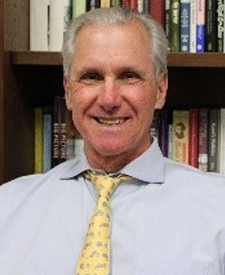
Richard J. Golsan, PhD
Dr. Richard Golsan is University Distinguished Professor and Distinguished Professor of French at Texas A&M University and a Senior Fellow at the Scowcroft Institute of International Affairs, Bush School of Government and Public Service at Texas A&M University. In addition, he currently serves as the Director of the France/Texas A&M University Institute (Centre d’Excellence) and as the Editor of South Central Review. His areas of research focus on modern and contemporary France and Europe as well as modern genocides and historical trials.
Dr. Golsan has authored or edited more than a dozen books and published more than 100 articles and book chapters. His latest books are The Vichy Past in France Today: Corruptions of Memory (Lexington Books, 2016) and The Trial That Never Ends: Hannah Arendt’s ‘Eichmann in Jerusalem’ in Retrospect, co-edited with Sarah M. Misemer (University of Toronto Press, 2017). Dr. Golsan has been awarded the Palmes Academiques by the French government. He holds a PhD and an MA in French literature from the University of North Carolina at Chapel Hill and a BA in French and geology from Washington and Lee University.

Ambassador John Hennessey-Niland
John T. Hennessey-Niland is the former U.S. Ambassador to Palau. He is one of the most experienced “Pacific hands” in the Department of State. He has served previously at the White House as the National Security Council, as a UN War Crimes Investigator in the former Yugoslavia and in Rwanda and at a number of posts in Europe and in the Pacific, where he has served in Fiji, in Australia, as well as in Hawaii where he was the “POLAD”, the foreign policy advisor, to the Commander of U.S. Marine Corps Forces Pacific (MARFORPAC). His last boss there is the current Commandant of the Corps, General David Berger. John was recognized by State as the POLAD of the Year while with the Marines. The Ambassador is a trail blazer. He was entrusted by the White House to be the first U.S. Ambassador to visit Taiwan since 1979 and is an advocate for expanding U.S. engagement with Taipei. He is also a leader on climate. His efforts – working closely with Special Presidential Envoy for Climate Secretary Kerry – helped ensure the annual Our Ocean Conference (OOC) was held in 2022 for the first time in the Pacific and in an island nation. The Ambassador’s success in advancing U.S. priorities across the Indo-Pacific has made headlines around the world. He has a distinguished record and is a proven foreign policy and national security leader with 35 years of diplomatic experience as a member of the U.S. Foreign Service. His other great passion, besides his family, is soccer. He is a FIFA qualified coach and played collegiate soccer at Tufts University.
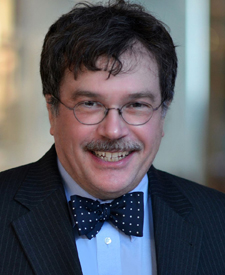
Peter J. Hotez, MD, PhD
Dr. Peter Hotez currently serves as Dean of the National School of Tropical Medicine and Professor of Pediatrics and Molecular Virology & Microbiology at Baylor College of Medicine, where he is also the Director of the Texas Children’s Center for Vaccine Development (CVD) and Texas Children’s Hospital Endowed Chair of Tropical Pediatrics. He is a Senior Fellow at the Scowcroft Institute of International Affairs, Bush School of Government and Public Service at Texas A&M University. In addition, he is University Professor at Baylor University and Fellow in Disease and Poverty at the James A. Baker III Institute for Public Policy. Dr. Hotez is an internationally recognized physician-scientist in neglected tropical diseases and vaccine development. As head of the Texas Children’s CVD, he leads the only product development partnership for developing new vaccines for hookworm infection, schistosomiasis, Chagas disease, and SARS/MERS, diseases affecting hundreds of millions of children and adults worldwide. In 2006, at the Clinton Global Initiative, he cofounded the Global Network for Neglected Tropical Diseases to provide access to essential medicines for hundreds of millions of people.
Dr. Hotez served previously as President of the American Society of Tropical Medicine and Hygiene, and he is founding Editor-in-Chief of PLoS Neglected Tropical Diseases. Dr. Hotez has authored more than 400 original papers and is the author of the acclaimed Forgotten People, Forgotten Diseases (ASM Press, 2008) and the recently released Blue Marble Health: An Innovative Plan to Fight Diseases of the Poor amid Wealth (Johns Hopkins University Press, 2016). He is an elected member of the National Academy of Medicine, and in 2011, he was awarded the Abraham Horwitz Award for Excellence in Leadership in Inter-American Health by the Pan American Health Organization of the WHO. From 2014 to 2016, he served in the Obama administration as U.S. Envoy, focusing on vaccine diplomacy initiatives between the U.S. government and countries in the Middle East and North Africa.
In 2015, Dr. Hotez emerged as a major national thought leader on the Zika epidemic in the Western Hemisphere and globally. He was among the first to predict Zika’s emergence in the U.S. and is called upon frequently to testify before the U.S. Congress. He served on infectious disease task forces for two consecutive Texas governors. For these efforts, in 2017, he was named by Fortune Magazine as one of the thirty-four most influential people in health care. In addition, as both a vaccine scientist and autism dad, he has led national efforts to defend vaccines and has served as an ardent champion of vaccines, going up against a growing national “antivaxx” threat. He appears frequently on television (including BBC, CNN, Fox News, and MSNBC) and radio as well as in newspaper interviews (including the New York Times, USA Today, Washington Post, and Wall Street Journal). Dr. Hotez holds a PhD in biochemistry from Rockefeller University, an MD from Weil Cornell Medical College, and a BS in molecular biophysics from Yale University.
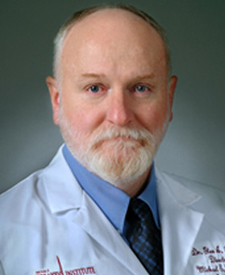
Glen Laine, PhD
Dr. Glen Laine is Regent’s Professor, Vice President for Research Emeritus, and Director of the Michael E. DeBakey Institute for Comparative Cardiovascular Science and Biomedical Devices at Texas A&M University. He is holder of the Wiseman-Lewie-Worth Endowed Chair in Cardiology. Dr. Laine served in the United States Army from 1967 through 1969. He began his academic career as a microbiologist working with various infectious agents. He expanded his graduate education into biophysics and biomedical engineering, applying first principles to human and animal medicine.
Dr. Laine spent a decade in a clinical department of anesthesiology and critical care medicine in the Texas Medical Center before returning to Texas A&M, where he assumed the role of Department Head of Physiology, Pharmacology and Toxicology for approximately twenty years. He spent the past four years as the Vice President for Research at Texas A&M, leading unprecedented growth in research expenditures to just under one billion dollars per year. As Vice President, he initiated the design and construction of the Biosafety Level-3 AG biocontainment facility. This facility will accommodate the chronic study of high consequence zoonotic diseases in large animals along with the vectors responsible for transmission of disease to animals and humans. As Director of the DeBakey Institute for the past eighteen years, he has published extensively in the medical and biomedical engineering literature on fluid resuscitation and edema formation in trauma patients. Dr. Laine’s diverse background led him to a significant interest in potential pandemics resulting from either intentional (bioterrorism) or accidental release of microorganisms genetically modified, utilizing techniques common to synthetic biology, including the policies needed to ensure appropriate preparation, response, and recovery in a resilient society.

Quan Li, PhD
Professor Li is Professor of Political Science and a Senior Fellow at the Scowcroft Institute of International Affairs, Bush School of Government and Public Service at Texas A&M University. His research interests include economic globalization (international trade, foreign direct investment, financial openness, and capital account liberalization), democratic governance, political violence (interstate military conflict, civil conflict, and transnational terrorism), environmental degradation, the rise of China, and research methodology.
Professor Li’s research has appeared in numerous journals, including British Journal of Political Science, Business and Politics, Comparative Political Studies, Conflict Management and Peace Science, International Interactions, International Organization, International Studies Quarterly, International Studies Review, Journal of Conflict Resolution, Journal of International Affairs, Journal of International Business Studies, Journal of Peace Research, Journal of Policy Analysis and Management, Journal of Politics, Political Research Quarterly, Political Science Research and Methods, Quarterly Journal of Political Science, Research & Politics, Review of International Political Economy, and Review of Policy Research, as well as various edited volumes.
Professor Li is the author or a coauthor of four books, including Democracy and Economic Openness in an Interconnected System: Complex Transformations (2009, Cambridge University Press), Politics and Foreign Direct Investment (2012, University of Michigan Press), Using R for Data Analysis in Social Sciences: A Research Project-Oriented Approach (2018, Oxford University Press), and Easy R: Access, Prepare, Visualize, and Explore Data, and Write Papers (2020, SAGE).
Professor Li joined the faculty of Texas A&M University in 2008. He served as the Director of the Program on International Conflict and Cooperation (PICC) in the Department of Political Science from 2008 to 2011. Previously, he was on the faculty of the Pennsylvania State University for 10 years, where he co-directed the Multidisciplinary Seminar Series on Globalization in the College of Liberal Arts and served on the inaugural Faculty Governing Council of the School of International Affairs. Professor Li also served on the National Science Foundation Political Science Advisory Panel, Fulbright U.S. Scholar Program Peer Review Panel, Southern Political Science Association Executive Council, and the editorial boards of American Journal of Political Science, Journal of Politics, International Studies Quarterly, and International Interactions.
Professor Li is the co-recipient of the 2003 Best Article on Democratization Award from the American Political Science Association. He holds a Cornerstone Faculty Fellow position at the College of Liberal Arts, 2017-2021. He has also received a Fulbright U.S. Senior Scholar Award from the 2019-2020 Fulbright Program.
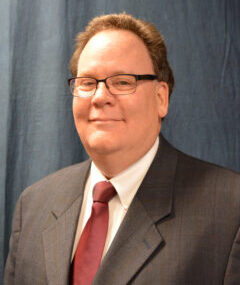
Jason Moats, PhD
Dr. Jason Moats is the Director of the Texas A&M Health’s USA Center for Rural Public Health Preparedness and a Professor in Health Policy and Management. He brings over two decades of experience from the Texas A&M Engineering Extension Service (TEEX), where he spearheaded projects such as creating immersive learning platforms for emergency responders, utilizing robots during the COVID-19 pandemic, and developing augmented reality tools for search and rescue missions.
Dr. Moats boasts a rich background in emergency services, having served as a firefighter and Emergency Medical Technician (EMT) in multiple states and in the U.S. Navy. His academic journey includes graduate degrees from Texas A&M University and an undergraduate degree from Southern Illinois University. He’s recognized for his contributions with awards like the Texas A&M Regents Fellow Award, the highest honor in the Texas A&M University System.
As an author and co-author, Dr. Moats has penned numerous articles on topics ranging from human resource development to disaster management. He’s also the author of “Agroterrorism: A Guide for First Responders.” His professional history spans roles at TEEX, the Kentucky Division of Emergency Management, and the U.S. Navy. Dr. Moats holds certifications in homeland security, college teaching, and is a Certified Training Professional and Fire Service Chief Executive Officer.
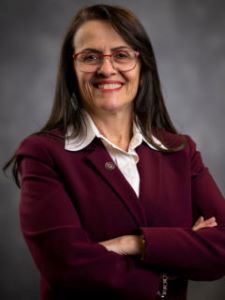
Elsa A. Murano, PhD
A native of Cuba, Dr. Murano grew up in Miami, majoring in Biology at Florida International University. She then earned M.S. and Ph.D. degrees in Food Science & Technology from Virginia Tech. In 1990, Dr. Murano began her career at Iowa State University, and then joined the faculty at Texas A&M, leading the Center for Food Safety as Director. After successfully leading major research projects in food safety, in 2001 Dr. Murano was appointed by President Bush to serve as Undersecretary for Food Safety, the highest-ranking food safety official in the U.S. government. After reaching the Centers for Disease Control Healthy People 2010 goals for foodborne illness reduction 6 years ahead of schedule, she returned to Texas A&M in 2005, where she became Vice Chancellor of Agriculture and Life Sciences and the first woman and first Hispanic President of the University. Since 2012, she has been Director of the Borlaug Institute for International Agriculture within Texas A&M, leading projects in applied research and extension designed to lift small farmers out of poverty and hunger in Asia, Latin America, Sub Saharan Africa, and the Middle East. Dr. Murano serves on several Boards, including the Board of Directors of Hormel Foods Corporation, Board of Directors of Blue Bell Creameries, is Chair of the Board of Trustees for the CGIAR International Livestock Research Institute (ILRI), and is a member of the Council of Advisors for the World Food Prize Foundation and of the Council of Advisors for the International Institute for Collaboration in Agriculture (IICA). Dr. Murano was named Outstanding Alumni in the Global Community of Virginia Tech University, was inducted into the U.S. Meat Industry Hall of Fame, the Texas Woman of the Year Hall of Fame, and awarded the “American By Choice Award” by the Department of Homeland Security, among many other honors and recognitions.

Ren Mu, PhD
Ren Mu is a Professor and holds the Robert H. and Judy L. Allen Professorship. Dr. Mu received her PhD in economics and MS in statistics from Michigan State University in 2004. She has an MA in law and BA in economics from Nankai University, China.
Dr. Mu’s research is in the empirical microeconomics area of development economics. She primarily focuses on decision making of households and individuals in the developing world. Through evidence-based analysis, her research goal is to enhance the understanding of micro foundations for designing and implementing sound development strategies and public policies. To date, Dr. Mu’s research can be grouped into three distinct sets of topics: (1) the determinants and impacts of human capital outcomes, (2) opportunities for rural-urban migration and its impacts on rural households, and (3) the effectiveness and allocations of public investments. In the Bush School, Dr. Mu teaches courses on global economy, economic development in China, and advanced economic development, as well as the study abroad field trip seminars (China) and the Capstone.

Gerald Parker, PhD
Dr. Parker is the Associate Dean for Global One Health at the College of Veterinary Medicine & Biomedical Sciences, and in this role, he also serves as Campus Director for Global One Health at Texas A&M University. He holds joint appointments at the Bush School of Government Service as Director of the Pandemic and Biosecurity Policy Program within the Scowcroft Institute for International Affairs and AgriLife Research as strategic advisor for the Institute for Infectious Animal Diseases.
Parker is a member of several advisory boards, including the National Academies of Sciences, Engineering and Medicine standing committee on Health Threats and Workforce Resilience, Homeland Security Science and Technology Advisory Committee, and the Biodefense Blue Ribbon Panel.
Prior to his appointment to Texas A&M University, Dr. Parker held technical to executive leadership positions throughout 36 years of public service as a recognized defense and civilian interagency leader in biodefense, high consequence emerging infectious diseases, global health security and all-hazards public health/medical preparedness. This included coordinating federal medical/public health responses to Hurricanes Katrina thru Alex, to the 2009 Pandemic and Haiti earthquake. Dr. Parker’s service includes more than 26 years on active duty leading medical research and development programs and organizations. He is a former Commander and Deputy Commander, U.S. Army Medical Research Institute of Infectious Diseases. Dr. Parker held senior executive level positions at the Department of Homeland Security, the Department of Health and Human Services (HHS) and the Department of Defense (DOD), including serving as the Principal Deputy Assistant Secretary for Preparedness and Response at HHS, and Deputy Assistant Secretary of Defense for Chemical and Biological Defense at DOD.
Dr. Parker is a 2009 recipient of the Distinguished Executive Presidential Rank Award, and the Secretary of Defense Medal for Meritorious Civilian Service in 2013. Dr. Parker graduated from Texas A&M’s College of Veterinary Medicine, Baylor College of Medicine Graduate School of Biomedical Sciences and the Industrial College of the Armed Forces.

Oyewale Tomori, DVM, PhD, FRCPath (UK), FCVSN, FASTMH, FAS (Nigeria), NNOM, NAM
Oyewale Tomori is the immediate past President of the Nigerian Academy of Science, with experience in virology, disease prevention, and control. He was at the University of Ibadan from 1971 to 1994. He later served as the pioneer Vice Chancellor of Redeemer’s University in Nigeria from 2004 to 2011. From 1994 to 2004, he was the virologist for the Africa Region of the World Health Organization (WHO), establishing the African Regional Polio Laboratory Network. In 1981, he was recognized by the U.S. Centers for Disease Control and Prevention (CDC) for contributions to Lassa fever research. In 2002, he received the Nigerian National Order of Merit, the country’s highest award for academic and intellectual attainment and national development. He has authored/coauthored over 150 scientific publications. Dr. Tomori has served or continues to serve on numerous advisory committees, including (nationally) Chair, Lassa Fever Steering Committee; National Laboratory Technical Working Group; Expert Working Group on Polio Eradication and Routine Immunization; and others, and (internationally) WHO SAGE; WHO Africa Regional Polio Certification Committee; WHO Group of Experts on Yellow Fever Disease; Chairman, WHO Yellow Fever Emergency Committee on International Health Regulations; GAVI Board; Vice Chair, U.S. National Academy of Medicine Global Health Risk Framework Commission; and World Bank Interagency Working Group on Financing Preparedness and Response. He is an international member of the U.S. National Academy of Medicine and is currently Chair of the Board of Biovaccines Nigeria Ltd.

Edward You
Edward You is a Supervisory Special Agent in the FBI’s Weapons of Mass Destruction Directorate and is currently detailed to the U.S. Department of Health and Human Services, Office of National Security. Mr. You’s responsibilities include coordinating and improving FBI and interagency efforts to identify, assess, and respond to biological threats or incidents. He leads efforts to identify and address potential security challenges in emerging biotechnology, such as synthetic biology and the use of big data in engineering biology. His overall goal is to safeguard the scientific community, the life science research enterprise, and the U.S. bioeconomy. Before being promoted to the Weapons of Mass Destruction Directorate, Mr. You was a member of the FBI Los Angeles Field Office Joint Terrorism Task Force and served on the FBI Hazardous Evidence Response Team.
Mr. You has also been directly involved in policy-making efforts with a focus on biosecurity. He served as a Working Group member of the National Security Council Policy Coordinating Committee on Countering Biological Threats and as the FBI Ex Officio member of the National Institutes of Health National Science Advisory Board for Biosecurity. He also had the privilege to serve on two National Academies of Sciences, Engineering, and Medicine Committees, the Institute of Medicine’s Forum on Microbial Threats and the Committee on Science, Technology, and Law’s Forum on Synthetic Biology.
Prior to joining the FBI, Mr. You worked for six years in graduate research focusing on retrovirology and human gene therapy at the University of Southern California, Keck School of Medicine. He subsequently worked for three years at the biotechnology firm AMGEN Inc. in cancer research.

